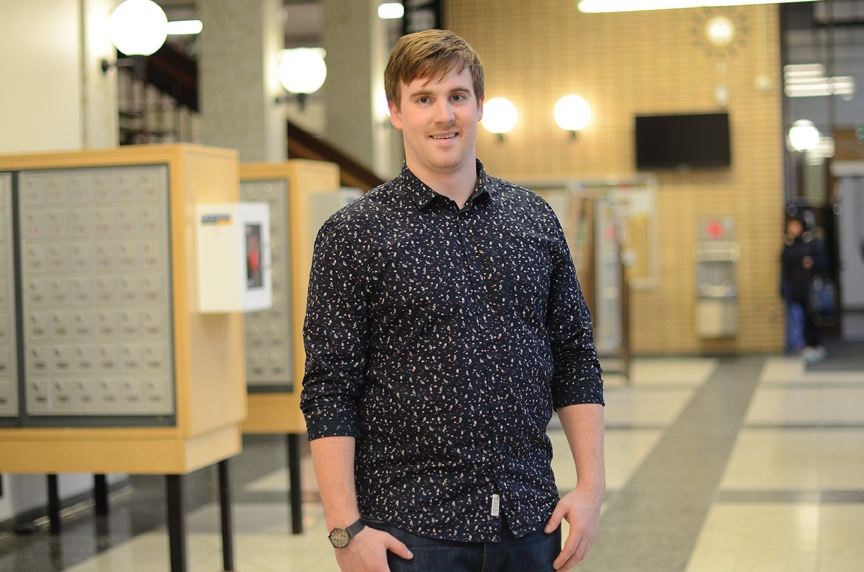When Kit Moran started his first semester at Dalhousie University medical school this year, he saw an opportunity that would combine his passion for health and background in the environment.
He applied and forgot about it.
Then two months later, the 25-year-old opened his email to learn he was headed to Paris for the 2015 United Nations Climate Change Conference.
"I was blown away," said Moran, who was born and raised in Prince George, and left for Halifax eight years ago.
That made Moran one of two Canadians - and one of only six in the world - chosen to represent the International Federation of Medical Students' Associations at the conference.
When most think of climate change, images of melting polar ice caps come to mind, or a warming climate, Moran said.
Rarely, do people consider how health is impacted by those very changes.
"They're very closely linked," said Moran, whose master's degree was in environmental policy and regulation. "A lot of the gases that cause climate change also have negative impacts on our health. The fumes that are caused by combustion engines, fossil fuel use, they've been linked to lung cancer and cardiovascular disease.
"So they cause quite a bit of mortality. It is something that we should be considering because climate change is a major threat not just to the environment, but to our health."
From 2030 and 2050, climate change will lead to 250,000 additional deaths worldwide per year, estimated the World Health Organization, with deaths due to malnutrition, malaria, diarrhea, and heat stress.
"We also have this great opportunity where, if we can change the environment for the better, we can also change our health for the better by adapting our economic systems," Moran said.
"There's definitely merit to considering it on economic terms but we should also be thinking about how does this not just impact our economy, but how does this impact our health as well?"
Canada's north and aboriginal communities are particularly affected by climate change, he said.
"A lot of people in our northern communities, and Prince George is one of them - are going to be affected by this," he said.
For his master's thesis, Moran worked with a northern reserve to see how fossil fuel development was impacting "their lives, their culture, their health."
"It's very closely linked to climate change," he said.
Change is especially evident in the Arctic, which is "incredibly sensitive" to the shifts in climate.
"It's seen as a barometer for climate change," said Moran, citing research that says the Arctic is warming at twice the rate of global temperatures.
That's according to a 2014 report led by the U.S.-based National Oceanic and Atmospheric Administration.
"It's largely accelerated and particularly by non-Arctic processes so what happens in other parts of the world is affecting the Arctic and there's not much they can do about it," Moran said.
He said he expects the conference to be a steep learning curve and is honoured to be chosen but also feels the weight of responsibility to represent his peers.
"I hope that we get to go out there and we get to change some minds and really advocate for health to be a factor to be included in decisions about climate change but I'm also realistic," he said.
"As a student we're going to be mixing with some pretty important people, so we're pretty easy to brush off."
Moran said having a youth voice is an important aspect of the talks and the student group will also be hosting workshops during the conference with WHO and the World Medical Association.
"Today's youth are going to inherit the planet so it's important we have a say in shaping that future," he said.
"I'm especially excited to work with other young people at the conference, just to hear what they're excited about, what they're worried about and what their perspectives are on how we shape the world for the future."
Moran will leave this week, less than two weeks after the Nov. 13 Paris attacks left 129 dead.
"Anytime you travel you have to be very prudent and careful, particularly now in the wake of what's happened in Paris, but it's not going to stop me from going," he said.
"The venues, the French, are doing a great job of trying to increase the security so I'm not particularly worried that anything's going to happen."



